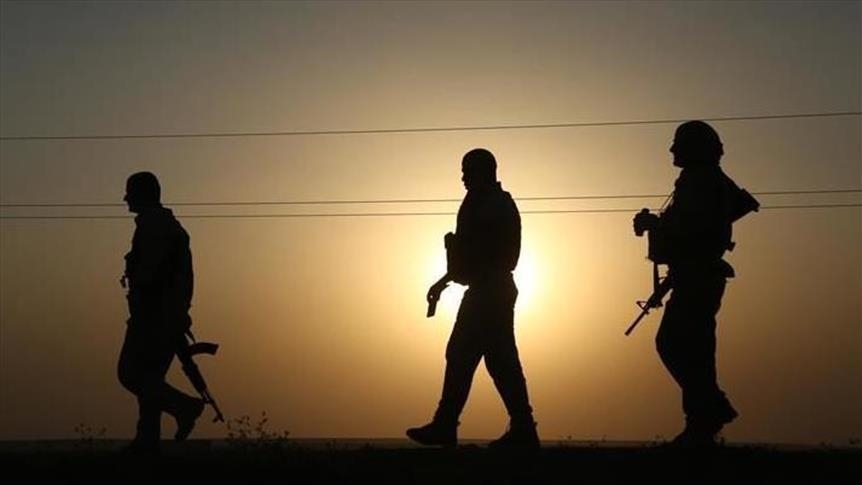Decommissioning of combatants in southern Philippines to be completed by 2025: IDB
26,000 fighters, or 65% of total, have been disarmed, says chairman of Independent Decommissioning Body

ANKARA
The Independent Decommissioning Body (IDB) aims to complete the disarmament of combatants under the Bangsamoro peace process by 2025, its chairman told Anadolu on Thursday.
Turkish Ambassador Mehmet Suat Akgun, who was appointed IDB chair earlier this year, said the body is committed to the success of the normalization process between the Philippine government and the Moro Islamic Liberation Front (MILF) in the southern Philippines.
He emphasized that during the IDB's formation, Türkiye, Brunei and Norway agreed to be members, with Türkiye leading the initiative.
- Parties desire success of process
Akgun recalled that a cease-fire was signed between the Philippine government and MILF in 2012, and in the following period, the parties reached an agreement on "all aspects of the normalization process."
"Both sides are highly determined and committed to seeing the peace process through to the end and ensuring its success," he added.
Disarmament process targeted by 2025
Akgun said the disarmament process, consisting of four stages, is targeted for completion by 2025 according to the agreement between the two sides.
He attributed occasional difficulties in the process to implementation and "interpretation” differences and noted that the COVID-19 pandemic, as an extraordinary development, has also slowed down the process due to its impact on the Philippine budget.
He emphasized that the first phase of the disarmament process, which commenced in 2015, marked a "symbolic" beginning involving a "disarmament ceremony" with 150 fighters.
He added that the second stage commenced in 2019, and during a four-year "pause" between the first two stages, the personnel were designated for the IDB's technical infrastructure and headquarters.
Akgun noted the COVID-19 pandemic's negative impact on the process but highlighted the completion of the third stage, with 35% more fighters disarmed as planned.
He underscored the significant progress achieved, saying that out of 40,000 fighters, 26,000 (65%) have completed disarmament, a critical step in their reintegration.
The ambassador also said that 4,625 weapons have been collected and there are plans for 14,000 more fighters to disarm, surrendering 2,375 additional weapons in the final stage.
He confirmed that all collected weapons would be destroyed by the IDB before the process ends, aiming to conclude the final stage before 2025 in accordance with the parties' agreement.
Efforts for regional stability persist
Akgun acknowledged that there have been occasional regional conflicts but noted the current state of peace, mentioning the lifting of the state of emergency in August due to improved stability.
Regarding coordination issues between the parties, he emphasized their commitment to preventing conflicts and establishing regional stability, demonstrating their determination to overcome challenges.
He defined the southern Philippines peace process as a "state policy" that remains consistent despite changes in government.
He highlighted the positive economic impact of achieving lasting peace and stability in the southern Philippines for the entire country and noted the strong support from President Ferdinand Marcos Jr. for the successful conclusion of this process.
Normalization process vital for reintegrating MILF fighters into society
Akgun underlined the essence of the normalization process in the Philippines, which focuses on reintegrating MILF fighters into society.
He said the Philippine authorities are actively providing support such as economic aid, vocational training, healthcare and housing to assist fighters in leading a "normal life" after disarming. These efforts are tailored to meet the local population's needs and ensure the success of the normalization process.
Akgun emphasized the importance of this process in reintegrating MILF fighters as productive members of society.
He also highlighted that the IDB's work, led by Türkiye, is closely monitored by the international community.
He believes that the successful completion of this process would exemplify Türkiye's capacity and willingness to contribute to resolving issues in regions beyond its own, setting a new global example.
Bangsamoro Autonomous Region in Muslim Mindanao
After nearly six decades of armed conflict between MILF and the Philippine army in Mindanao, a cease-fire agreement was signed in 2012.
In January 2019, a referendum approved the "Bangsamoro Organic Law," officially establishing the "Bangsamoro Transition Authority" in the region.
Haji Murad Ebrahim was appointed and sworn in by then Philippine President Rodrigo Duterte as the interim chief minister of the newly formed Bangsamoro Autonomous Region in Muslim Mindanao (BARMM) in February 2019.
Bangsamoro is home to approximately 5 million people, with the majority being Muslims.
*Writing by Necva Tastan








